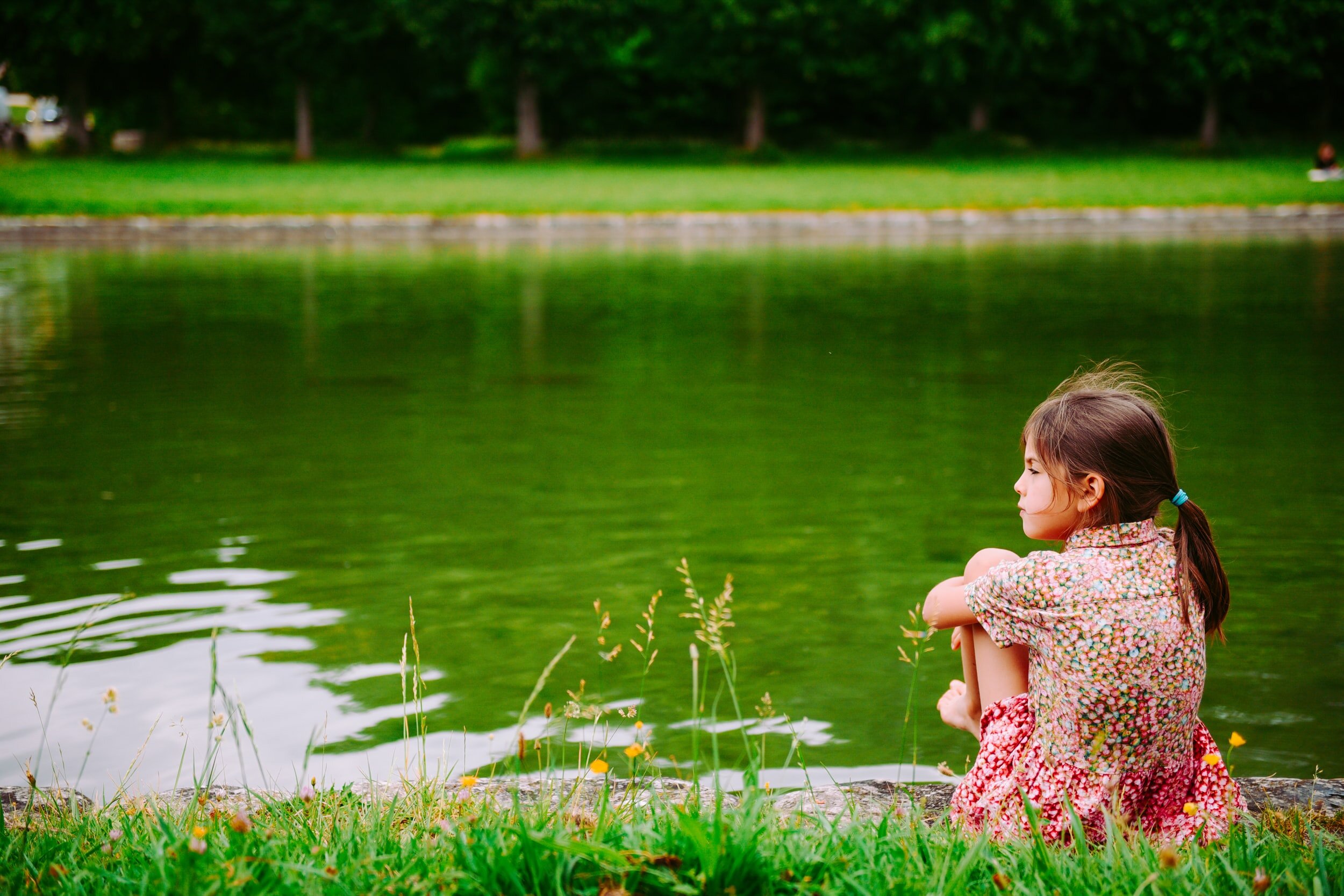Skills, strategies, tools for your emotional toolbox…coping skills go by a lot of names, and as a children’s therapist I talk about them all day, every day. But you know how sometimes if you say a word over and over, it starts to sound weird? That’s kind of how I’m starting to feel about the term “coping skill.” What even is a coping skill, exactly? I love coping skills and I sing their praises often: I have covered how to use them to manage all sorts of feelings. Today I’m going to do something a little different and talk about what coping skills are, why kids need them, and why they aren’t always healthy.
The Definition of a Coping Skill
“Coping skill” is a broad term that gets used to describe pretty much any activity that is good for a person’s mental health. Let’s take a look at a dictionary definition for “coping mechanism” to see if we can get a little more specific:
an adaptation to environmental stress that is based on conscious or unconscious choice and that enhances control over behavior or gives psychological comfort.
Technically, any healthy habit that reduces stress is a coping skill: stuff like getting good sleep, proper nutrition, and exercising regularly. But usually, when we talk about coping skills we mean something that provides more instant gratification. Coping skills are things that we can do in-the-moment, when we are feeling lousy, to help us turn down the volume of our emotions and avoid getting overwhelmed. They help us to get through stressful situations with a little more ease, and without doing something we’d regret later on.
Coping Skills Are NOT Just a Band-Aid
I sometimes hear people criticizing coping skills, claiming that they are a band-aid solution for a deeper problem. I get where they are coming from: coping skills deal with symptoms without trying to figure out where they come from. If a child uses a deep breathing technique to manage anxiety, she is soothing herself but probably isn’t going to discover that caused the anxiety to happen in the first place. Because of this, coping skills are sometimes seen as being too “surface-y” or superficial to create lasting change.
In my experience, this just isn’t the case! Coping skills provide an entry point for kids to dig deeper into the issues that are really bothering them. When a child learns and practices coping skills, she learns that her feelings don’t just “happen” to her: she has some control over them, and how she chooses to deal with them. That’s a pretty huge discovery! Once children discover they can create positive change with coping skills, it often empowers them to create change in other places in their lives. The same is true with families: trying new coping skills disrupts old patterns of behavior between parents and kids, and clears the way for something new.
…But They Probably Won’t Solve All Your Problems, Either
For kids with mild anxiety or life stress, learning a few effective coping skills may be all they need to feel better. However, most kids with a diagnoseable mental health struggle like anxiety or depression will need therapy beyond coping skills in order to heal. Finding coping skills that work well can lay a strong foundation for future therapy.
For example, children with anxiety might find relief from cognitive behavioral therapy, which can help them to face their fears without getting overwhelmed. Kids who are acting out at home can work together with their parents to break old cycles of behavior, find discipline that works, and enjoy a more positive relationship. Children who have survived a trauma will likely need a specialized therapy like TF-CBT to help them work through their feelings and memories in a safe way. For all these kids, coping skills are a great first step—they’re just not the end of the road.
Types of Coping Strategies
There are a million coping skills out there, but most of them fall into one of a few main categories. Not all coping skills work for all people, and you’ll probably need a few different options to help you navigate different situations. Here are the main types of coping skills that I help kids to learn in my therapy practice:
Relaxation: These skills help kids to soothe and relax the body, which can in turn help the mind feel more calm. Because anxiety symptoms are often felt strongly in the body, relaxation is especially helpful for anxious kids. A few common relaxation coping skills are:
Soothing activities, like a warm bath or a cup of herbal tea
Deep breathing exercises
Progressive muscle relaxation
Guided visualization
Mindfulness: Mindfulness skills help a child to stay in the here-and-now, rather than worrying about the future or thinking about the past. Mindfulness helps children to focus their attention on the present, be more aware of their feelings and surroundings, and feel more grounded during times of intense stress. These skills include:
Meditation
Observing and describing your surroundings
Panic attack coping skills like the 5-4-3-2-1 technique
Sensory play, for younger children
Safe Ways to Express Feelings: Sometimes, strong feelings just need to be let out. These skills help kids vent their feelings in a safe way that isn’t destructive or hurtful to themselves or other people. This is especially helpful for kids who experience strong anger, since uncontrolled anger might lead to hitting, breaking toys, or yelling at others. Here are some healthier ways to express emotions:
Journaling
Non-aggressive physical activity
Creating art
Assertive communication skills
Positive, Rewarding Activities: Fun is good for our mental health. Doing things that give us a sense of satisfaction and enjoyment are key to giving meaning to life and preventing depression. Kids need to be around other kids in order to grow and develop emotionally, so social opportunities are important coping skills for them, too. Here are a few examples of activities that fit the bill:
Sports and recreational activities
Hobbies that encourage a sense of accomplishment
Spending time with supportive friends
Volunteering
Can Coping Skills Ever Be Unhealthy?
The short answer: yes. Many of the things kids do that adults call “bad behavior” are actually attempts to cope with stress or strong feelings. Kids do these things to try to help themselves feel better—after all, if there was no benefit to the behavior, why bother at all? Adults don’t use perfect coping skills 100% of the time, either: who among us hasn’t turned to a bowl of ice cream or online shopping to deal with a bad day?
Coping skills can be adaptive, meaning they are healthy and helpful, or maladaptive, meaning they might help someone momentarily feel better, but they’ll do more harm than good in the long run. Some of these unhealthy coping skills are only mildly unhelpful, such as:
Procrastination
Numbing or ignoring feelings
Tantrums or meltdowns
Yelling, swearing, or name-calling
Other maladaptive coping skills are more serious, and can be dangerous or harmful. Seriously unhealthy coping skills include:
Drug and alcohol abuse
Self-harm
Violence toward others
Risky behavior, like shoplifting or dangerous driving
We all use some of these unhealthy coping skills occasionally, but it’s not good for kids—or adults—to rely on them as the main way they handle stress. Obviously, the more dangerous maladaptive coping skills are not good for anybody and need to be taken very seriously. Children using drugs, alcohol, or self-harm as a means to cope need the help of a therapist or other crisis resources.
Need Some Coping Skills Ideas for Kids?
Coping skills are a great form of self-help to try while you’re looking for a counselor, or before considering mental health treatment. My online coping skills courses teach kid-friendly strategies for dealing with strong emotions in a self-help format you can access any time. Worry-Free Tweens, designed for kids 8-12, is a great intro course for managing anxiety at home.
I have a bunch of articles on coping skills that kids and parents can use at home to deal with a variety of issues. Check out the resources below:
Coping Skills for the Pandemic
Anger Management Coping Skills
Coping Skills for Anxiety
Depression Coping Skills
Coping Skills for Panic Attacks
If you are looking for a counselor to help your child work on coping skills and you’re in North Carolina, New York, or Florida, I may be able to help. You can contact me here.





